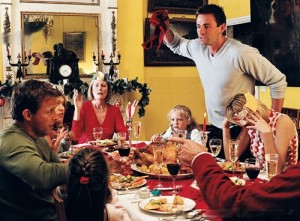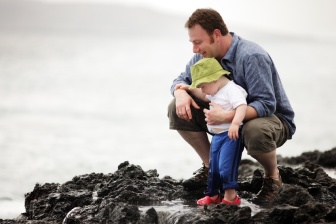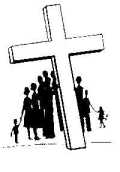
It is amazing to me how we often define words like “optimism”. To the optimist, the word means that you believe the best. To the realist, the optimist is still in touch with reality; but, just barely. To the pessimist, the optimist has totally broken with things as they are and is slipping into delusional thinking. Seeing the glass half-empty or half-full is a more considerate way of explaining the difference.
Martin Seligman has spent a lifetime studying the contrast between optimism and pessimism. You may remember his early studies on “Learned Helplessness“. He contends that optimism is a learned behavior that can help people overcome depression, anxiety and a host of other disorders. In the second edition of his book Learned Optimism: How to Change Your Mind and Your Life (Seligman, 2006), Seligman takes on the ‘self esteem’ movement in our culture and its shortcomings. Just a quick read of the preface to this edition is both insightful and convincing.
Optimism is defined in the Merriam-Webster Dictionary is: “an inclination to put the most favorable construction upon actions and events or to anticipate the best possible outcome.”
I believe that God is an optimist. A primary example is His relationship to Israel.
“For he remembered his holy promise given to his servant Abraham. He brought out his people with rejoicing, his chosen ones with shouts of joy; he gave them the lands of the nations, and they fell heir to what others had toiled for—that they might keep his precepts and observe his laws.” (Psalm 45:42-45)
In this psalm the author recalls the great works of God as He brought His people out from the land of Egypt, concluding with the prequel to their entrance into Canaan and the result. Canaan was a land that had been prepared for them on account of at least two things: 1) God’s promise to Abraham and 2) the wickedness of the nations that had lived there before them. Moses made it clear to them that it was not because of Israel’s righteousness or because they were better than anyone else (Deut. 9:4-6). Yet, he gave them this land to that they would “keep his precepts and observe his laws.”

Anyone who is familiar to Israel’s history knows of the difficulty they had keeping His precepts and observing His laws. How many times did God, the eternal optimist, tell Israel, in essence: ‘C’mon, trust me. You can do it. I’ll help you.’ Knowing that they would fail, that they would pursue other gods and that they would disobey Him, He still chose to believe in them.
Parents often beat themselves up because their children chose to live in ways that disrespect their upbringing. Plagued with guilt, they wonder what they did wrong, how they missed the boat and what they could have done differently.
Sure, there are things we could have done differently. Sometimes things work out beautifully, in spite of a child’s parents whose parenting skills were horrible. Sometimes ‘perfect’ parents have children that just do not seem to have any regard for their family’s beliefs, values and morals.
In the midst of that, all parents have an opportunity to make a choice: “Am I going to deal with my disappointments and hope for the best or anticipate the worst?” Without going into all of the reasons, in the end, I would recommend  the course of optimism because that is the course God has chosen.
the course of optimism because that is the course God has chosen.
In other words, when you hope for the best, even when your kids demonstrate that they presently have no intention of moving in that direction, you are in good company with the God of high hopes and a broken heart:
“Jerusalem, Jerusalem, you who kill the prophets and stone those sent to you, how often I have longed to gather your children together, as a hen gathers her chicks under her wings, and you were not willing.” (Luke 13:34)

 Change is one of those love/hate necessities of life that, right now, I don’t like very much. It really messes with my environmental predictability engineering!
Change is one of those love/hate necessities of life that, right now, I don’t like very much. It really messes with my environmental predictability engineering! .
.
 Holiday advertisers would have us think of this time of year as a happy, care-free time to live extravagantly, to buy things and to eat well. This is supposed to be a time to kiss the blues goodbye, to celebrate family, to be filled with good cheer, to let go of the past and to look to the future with joy, hope and a sense of glorious anticipation.
Holiday advertisers would have us think of this time of year as a happy, care-free time to live extravagantly, to buy things and to eat well. This is supposed to be a time to kiss the blues goodbye, to celebrate family, to be filled with good cheer, to let go of the past and to look to the future with joy, hope and a sense of glorious anticipation.

 People are often surprised when I tell them I can usually schedule an appointment within a day or two. Part of the reason this is possible is because of the nature of my practice of Brief Marriage and Family Therapy. Another expression used to describe this approach is “solution-focused” therapy or strategic, goal-directed therapy.
People are often surprised when I tell them I can usually schedule an appointment within a day or two. Part of the reason this is possible is because of the nature of my practice of Brief Marriage and Family Therapy. Another expression used to describe this approach is “solution-focused” therapy or strategic, goal-directed therapy. and other resources to making simple choices such as what to have for breakfast and prioritizing to-do lists, the very fabric of marriage and family life is woven with choices and decisions.
and other resources to making simple choices such as what to have for breakfast and prioritizing to-do lists, the very fabric of marriage and family life is woven with choices and decisions.



 The Double Bind is defined as “…a psychological predicament in which a person receives from a single source conflicting messages that allow no appropriate response to be made” (
The Double Bind is defined as “…a psychological predicament in which a person receives from a single source conflicting messages that allow no appropriate response to be made” ( Parenting is tough. While children go through their developmental changes, each with their own unique personalities and temperaments, parents must morph their parenting tools to adapt and change. Not only must the techniques and tools change with developmental stages but, at the same time, they must further adapt to the uniqueness of each child. I sometimes wonder who must change the most during these transitions: the child or the parent!?
Parenting is tough. While children go through their developmental changes, each with their own unique personalities and temperaments, parents must morph their parenting tools to adapt and change. Not only must the techniques and tools change with developmental stages but, at the same time, they must further adapt to the uniqueness of each child. I sometimes wonder who must change the most during these transitions: the child or the parent!?
 “His anger was offensive. He ought to be more considerate. It is a choice. After all, it is Thanksgiving!”
“His anger was offensive. He ought to be more considerate. It is a choice. After all, it is Thanksgiving!” decide how they wish to respond. You may be surprised to realize that they respect your decisions and appreciate the lack of mixed messages that often come with pressured choices and vacillating principles.
decide how they wish to respond. You may be surprised to realize that they respect your decisions and appreciate the lack of mixed messages that often come with pressured choices and vacillating principles.